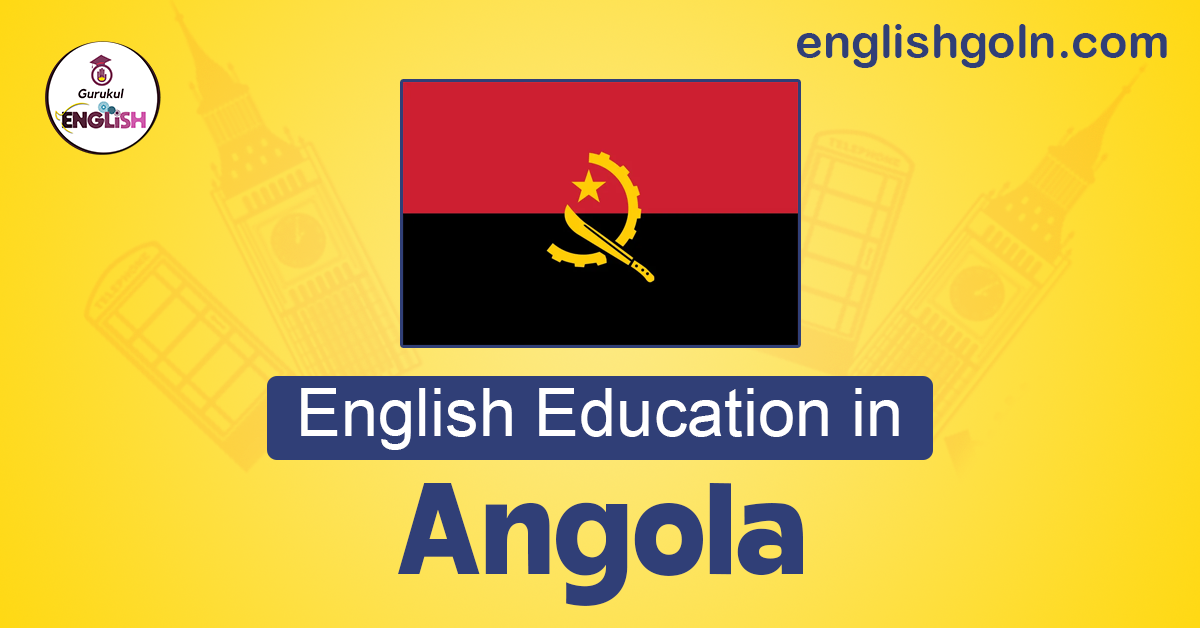English education in Angola has seen significant development in recent years, reflecting the country’s efforts to integrate into the global economy and foster international communication. As one of the most widely spoken languages worldwide, English proficiency is increasingly valued for business, education, and diplomacy. This article delves into the current state of English education in Angola, exploring the challenges faced by the educational system and the opportunities for growth and advancement.
Historical Context of English Education in Angola
Angola, a former Portuguese colony, gained independence in 1975 after a protracted armed struggle. Portuguese became the official language during the colonial era, and it remains the primary language of administration, media, and education. The country’s education system has been predominantly Portuguese-centric, with limited emphasis on English education until more recent times.
In the aftermath of independence, Angola faced significant challenges in rebuilding its educational infrastructure and meeting the demands of a rapidly growing population. English, as a global language of commerce and diplomacy, was not initially prioritized in the education system. However, recognizing the importance of English for international trade and diplomacy, the Angolan government has made efforts to strengthen English language education in recent decades.
The Current State of English Education
English education in Angola has made significant strides in recent years, albeit with some challenges. Key aspects of the current state of English education include:
1. Curriculum and Syllabus: English is now taught in primary and secondary schools across Angola. The curriculum typically includes the study of grammar, vocabulary, reading comprehension, and speaking skills. However, the availability of qualified English teachers and resources remains an issue, particularly in rural areas.
2. Higher Education: Many Angolan universities offer English language programs to meet the demands of the job market and foster international academic exchanges. English proficiency is increasingly valued by employers in sectors such as business, tourism, and international relations.
3. English Language Institutes: Private language institutes have emerged, offering specialized English courses for adults and professionals seeking to improve their language skills for personal and career growth.
4. Government Initiatives: The Angolan government has undertaken initiatives to promote English education. This includes partnerships with English-speaking countries and organizations to provide training for English teachers and promote English language learning.
Challenges Facing English Education in Angola
While progress has been made in English education, several challenges hinder its widespread implementation and effectiveness:
1. Teacher Shortages: There is a shortage of qualified English teachers, especially in remote and rural areas. The recruitment and retention of competent teachers are essential to ensure the quality of language education.
2. Limited Resources: Schools often lack the necessary resources, such as textbooks, learning materials, and audio-visual aids, to support effective language learning.
3. Access to Technology: The digital divide in Angola poses a challenge to integrating technology in language learning. Access to computers and the internet can significantly enhance language acquisition, but this is limited in many schools and communities.
4. Language Policy: The dominance of Portuguese in the education system creates challenges for incorporating English effectively. Bilingual education models and clear language policies are required to strike a balance between the two languages.
5. Sociocultural Barriers: In some communities, there may be resistance to adopting English as a second language due to cultural and historical ties to Portuguese.
Opportunities for Growth and Advancement
Despite the challenges, several opportunities exist to advance English education in Angola:
1. Teacher Training: Investing in professional development programs for English teachers can enhance their pedagogical skills and improve the quality of language instruction.
2. Partnerships and Exchanges: Collaborations with English-speaking countries and international organizations can provide access to expertise, resources, and exchange programs for students and teachers.
3. Digital Learning: Utilizing technology in language learning can reach a broader audience and create interactive and engaging learning experiences.
4. Bilingual Education: Integrating bilingual education models can leverage students’ proficiency in Portuguese to facilitate the learning of English.
5. Cultural Exchanges: Promoting cultural exchanges between Angola and English-speaking countries can foster linguistic and cultural understanding.
Conclusion
English education in Angola is an essential component of the country’s efforts to engage with the global community and advance economically and diplomatically. While challenges remain, the government, educational institutions, and international partners can work together to address these issues and create a more robust and effective English education system. By investing in qualified teachers, resources, and technology, Angola can equip its citizens with the language skills needed for personal and professional success in an increasingly interconnected world.
